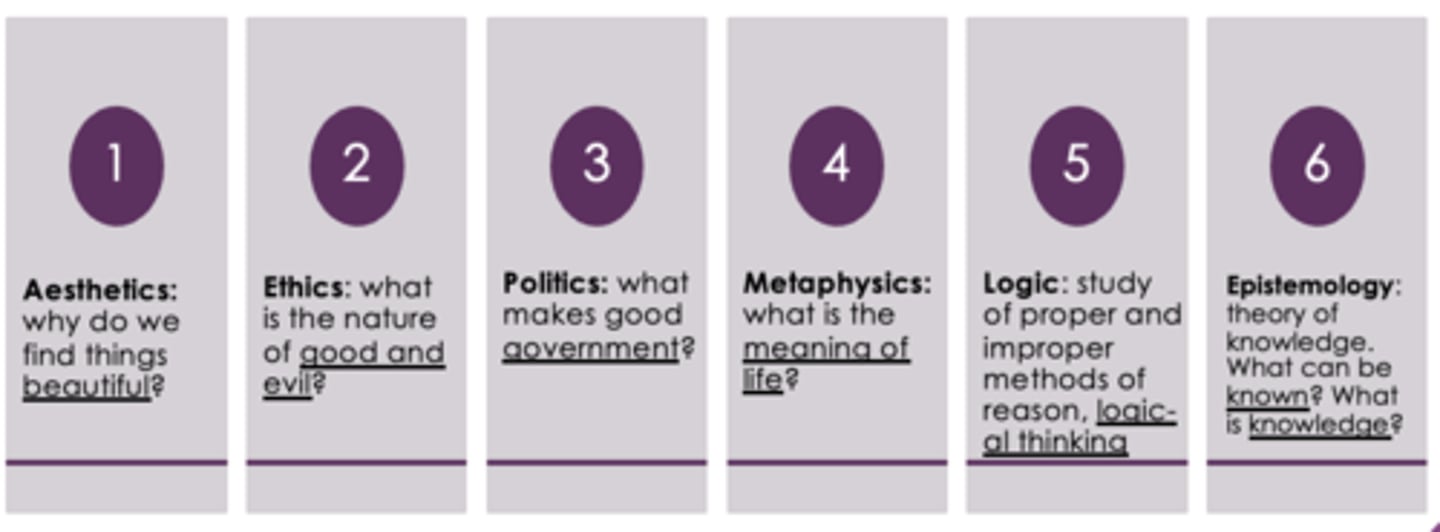leadership, communication, and collaboration in nursing - lecture 3 pt 1
1/54
There's no tags or description
Looks like no tags are added yet.
Name | Mastery | Learn | Test | Matching | Spaced | Call with Kai |
|---|
No analytics yet
Send a link to your students to track their progress
55 Terms
components of systems
Input - 1st component - information, energy, matter entering a system
Throughput - second component
Output - end result
Evaluation - means measuring the success
Feedback - final component
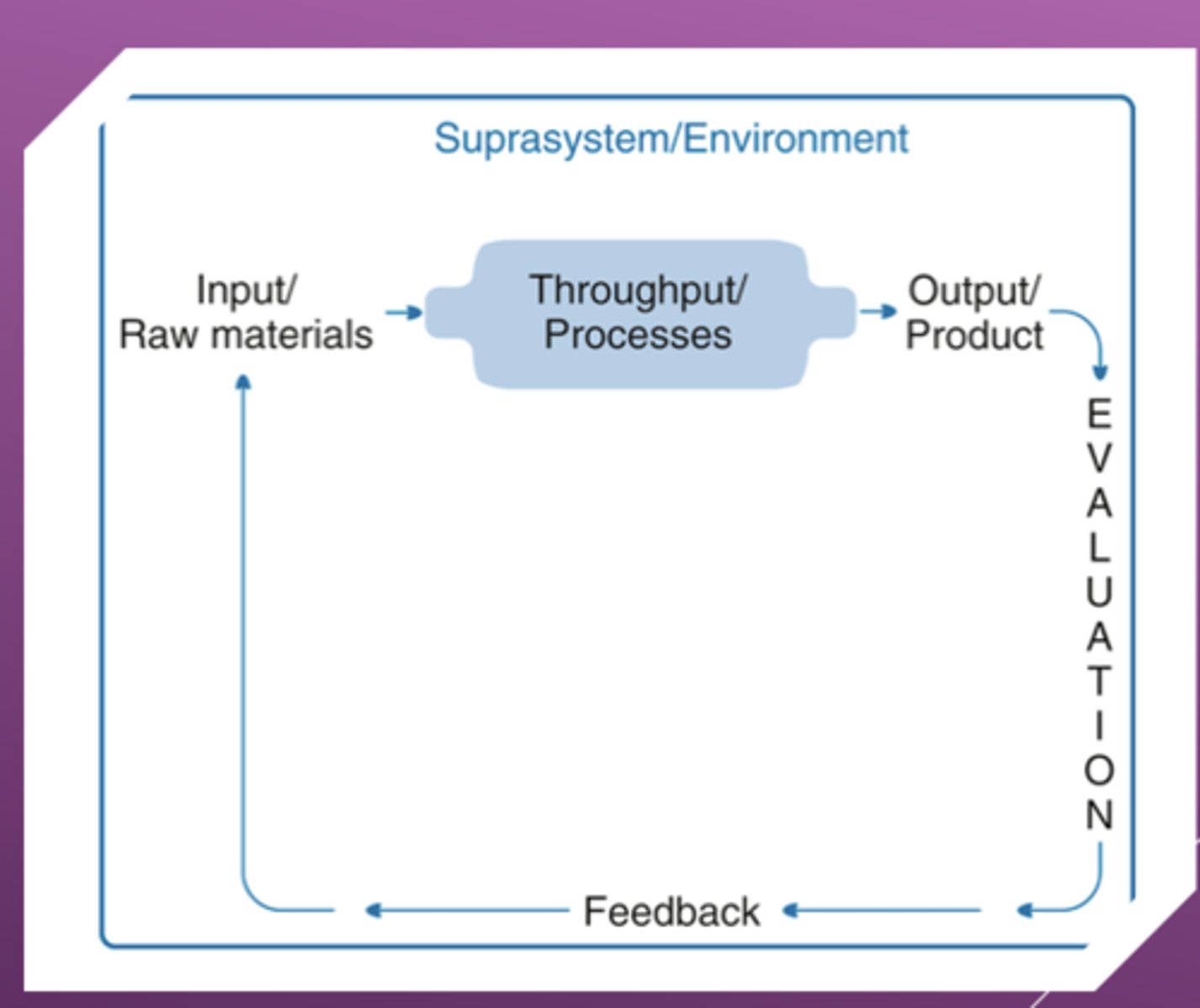
components of systems - example
components of systems - example
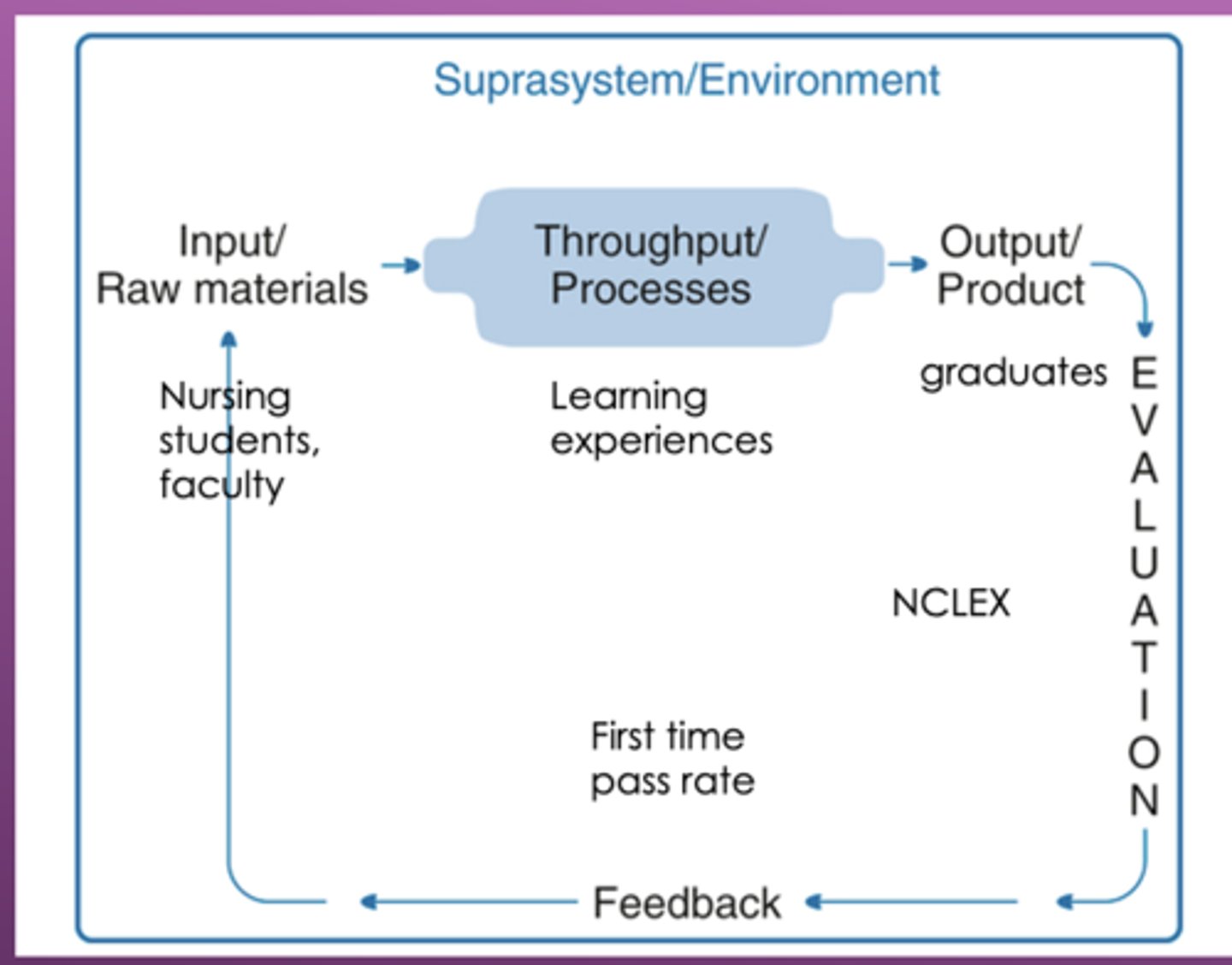
systems
-Open: exchange
-Closed: no exchange/interaction (very few)
SYNERGY
Subsystems working together
1+1>2
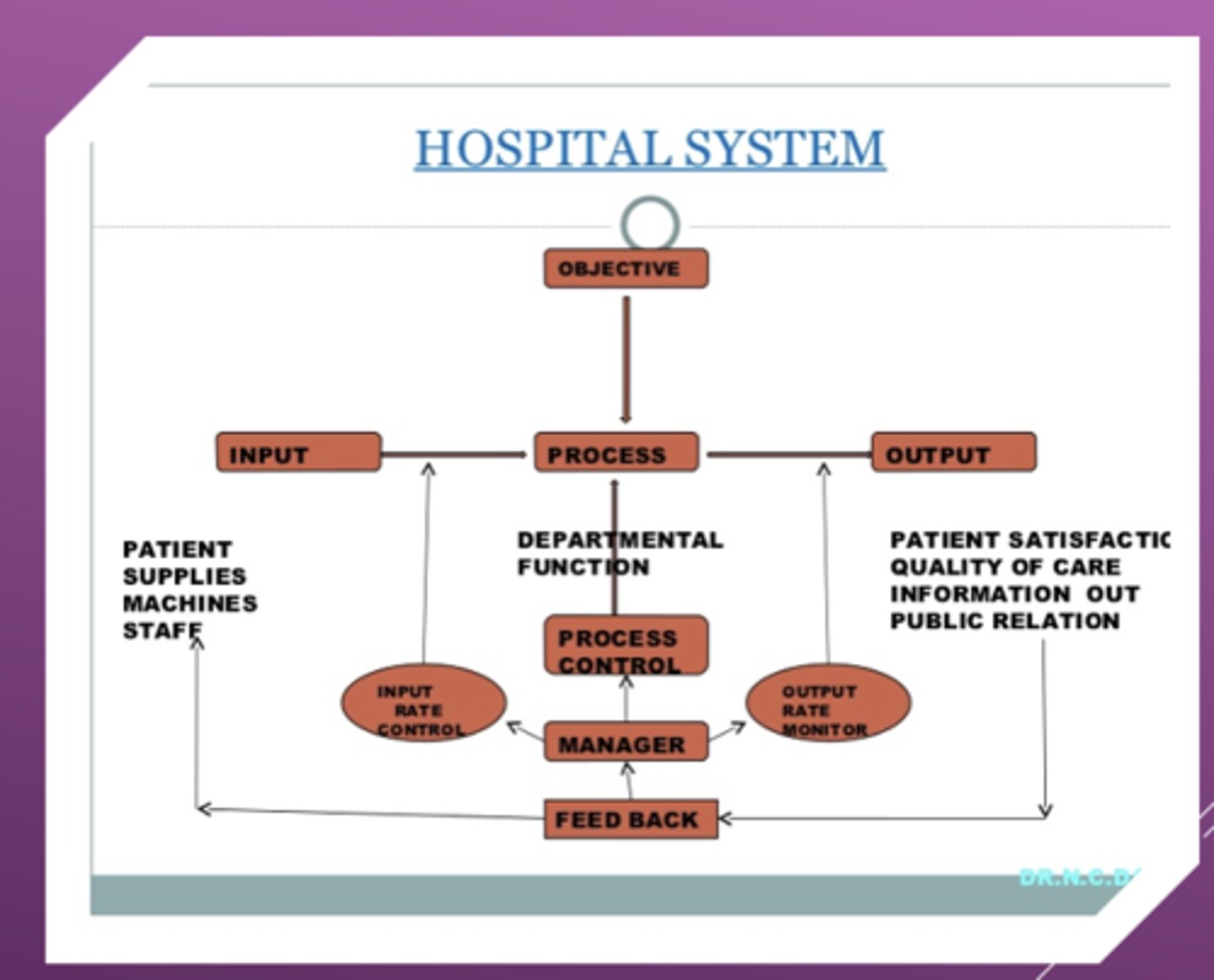
subsystems
smaller systems that operate within the context of a larger system
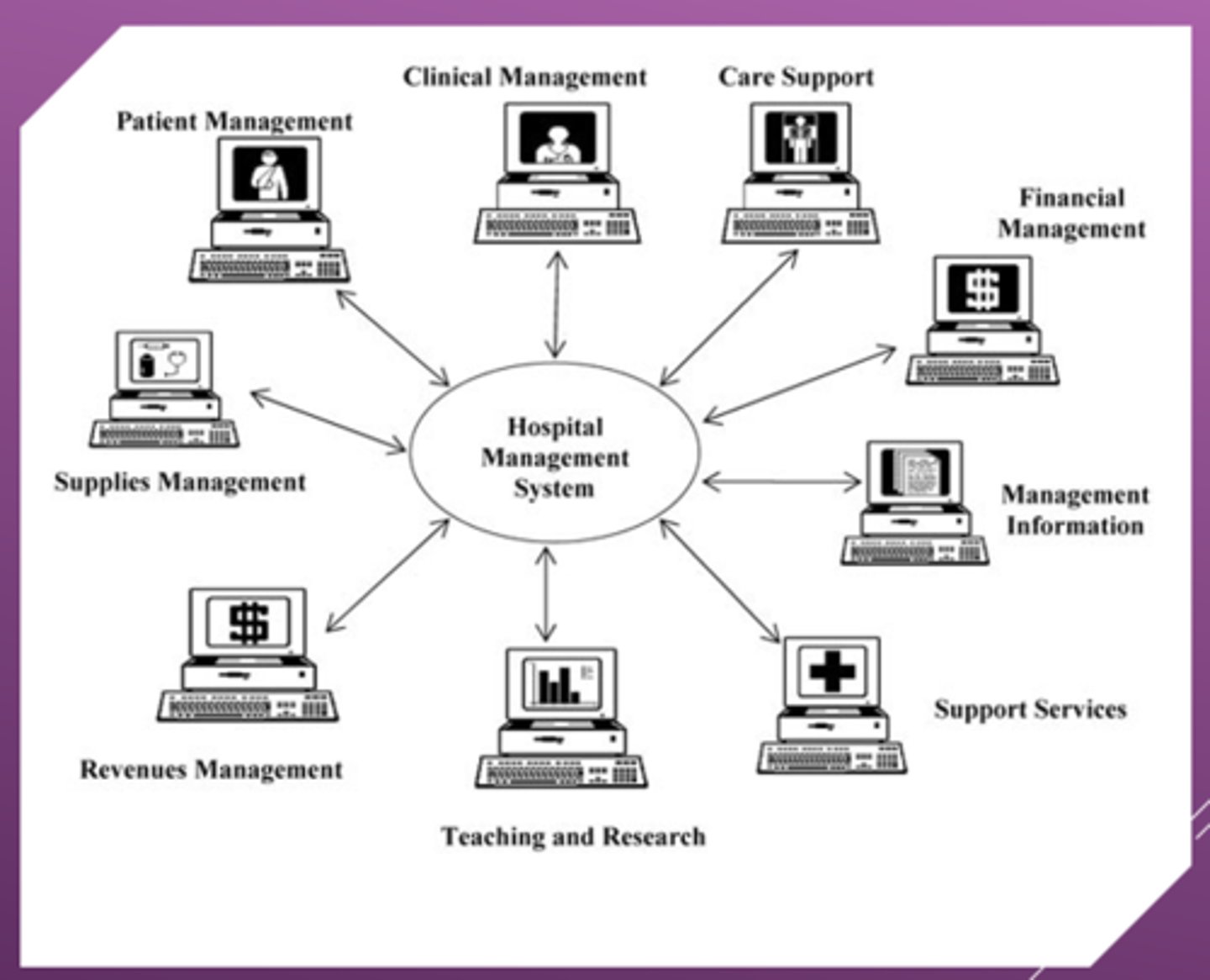
all are related and impact each other
Hospital system
-How can hospital systems impact nursing practice?
-How can hospital systems impact patients?
-How can nursing practice impact hospital systems?
-How can patient impact hospital systems?
what is the main idea from this....
foundation of nursing
foundation of nursing
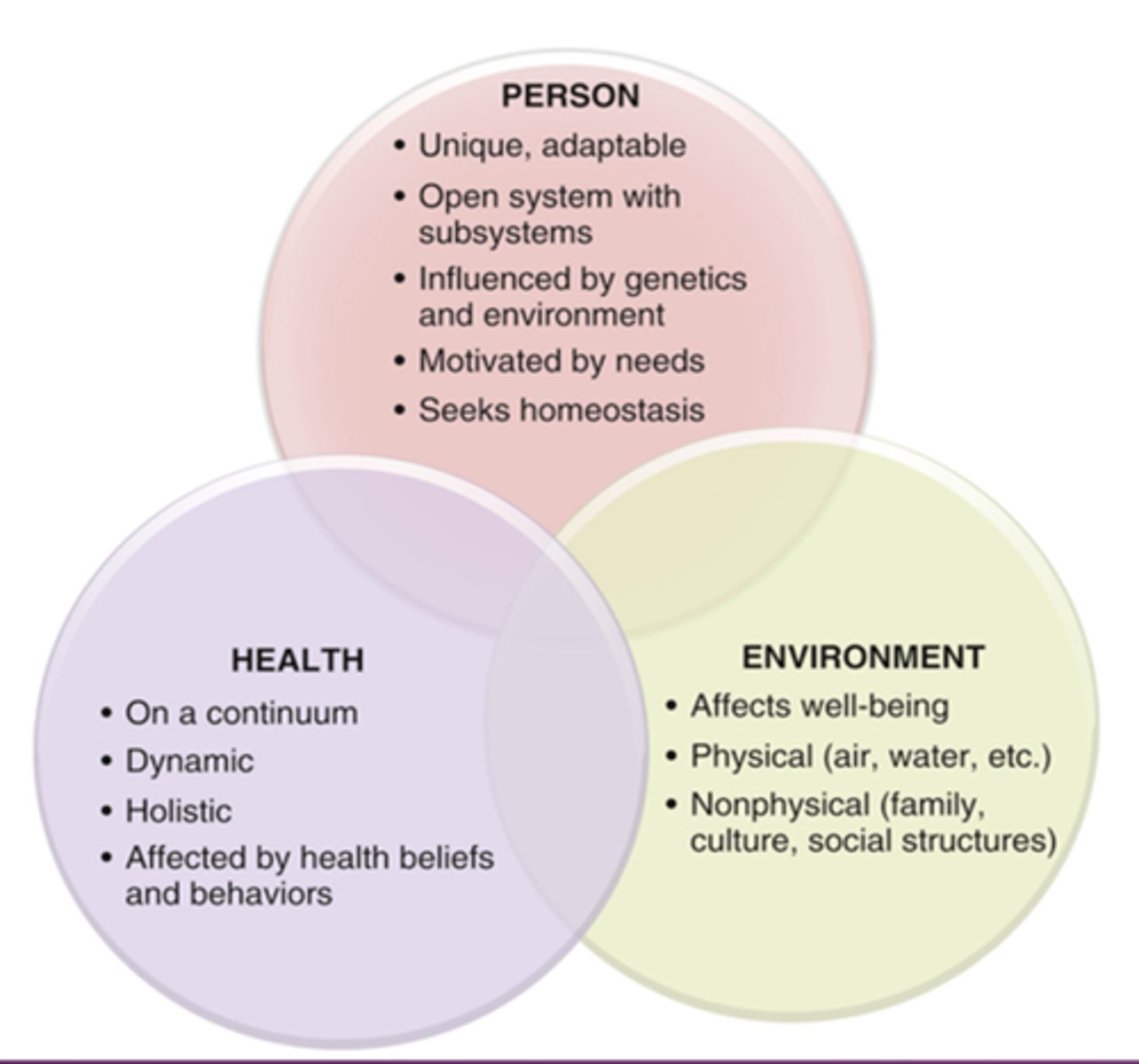
person
-unique, adaptable
-open system with subsystems
-influenced by genetics and environment
-motivated by needs
-seeks homeostasis
environment
-affects well-being
-physical (air, water, etc.)
-nonphysical (family, culture, social structures)
health
-on a continuum
-dynamic
-holistic
-affected by health beliefs and behaviors
maslows hierarchy of needs
1. physiological needs
2. safety needs
3. social needs
4. esteem needs
5. self-actualization
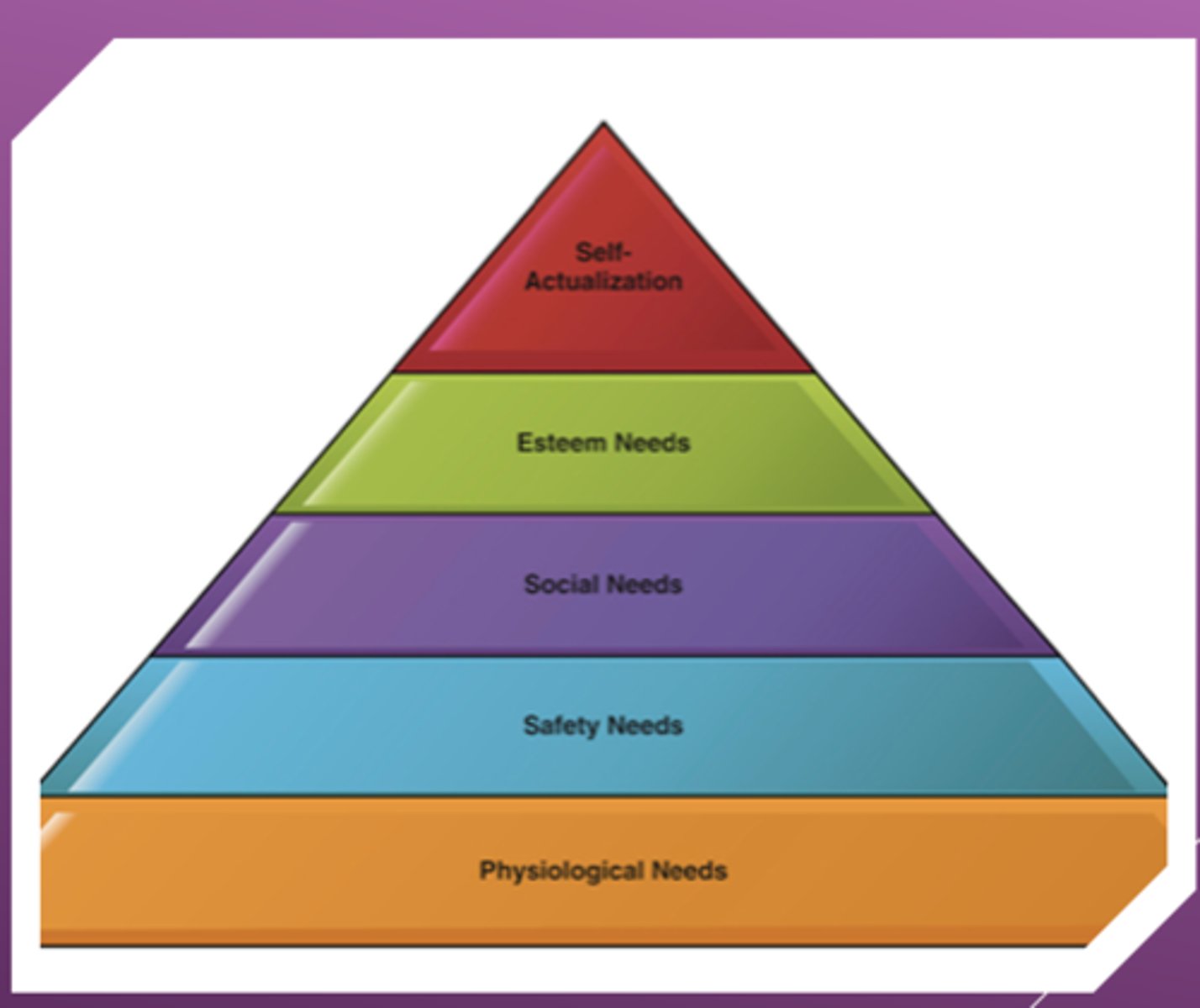
physiological needs
most basic needs
safety needs
physical and psychological safety and security
social needs
love and belonging
esteem needs
self worth, respect, and reliance
self-actualization
max potential , peak experiences of using talents, skills, and abilities
-HIERARCHY OF NEEDS
-NEEDS VARY
-ADAPTATIONS VARY (Rogers, 1961; Becoming a Person)
-consider nurses and patient examples
-HOMEOSTASIS
-Threatened when needs not met
-HOW DOES THIS TIE TO INDIVIDUALIZED NURSING CARE?
what are some assumptions about needs
family
-most direct influence ona. person
-types, trends
cultural
-increase number of diverse groups
-ethnocentrism: making judgements
social
-increased illness following social change
-support, social networks
community, national, and world
-impact of nurses, hospitals
-national, global
health
"a state of complete physical, mental and social well being and not merely the absence of disease or infirmity" WHO 1947
health care without harm
an organization with the mission to reduce hazardous waste, specifically mercury, produced from healthcare facilities. This organization encourages nurses to become "environmental health activists
health continuum
health continuum
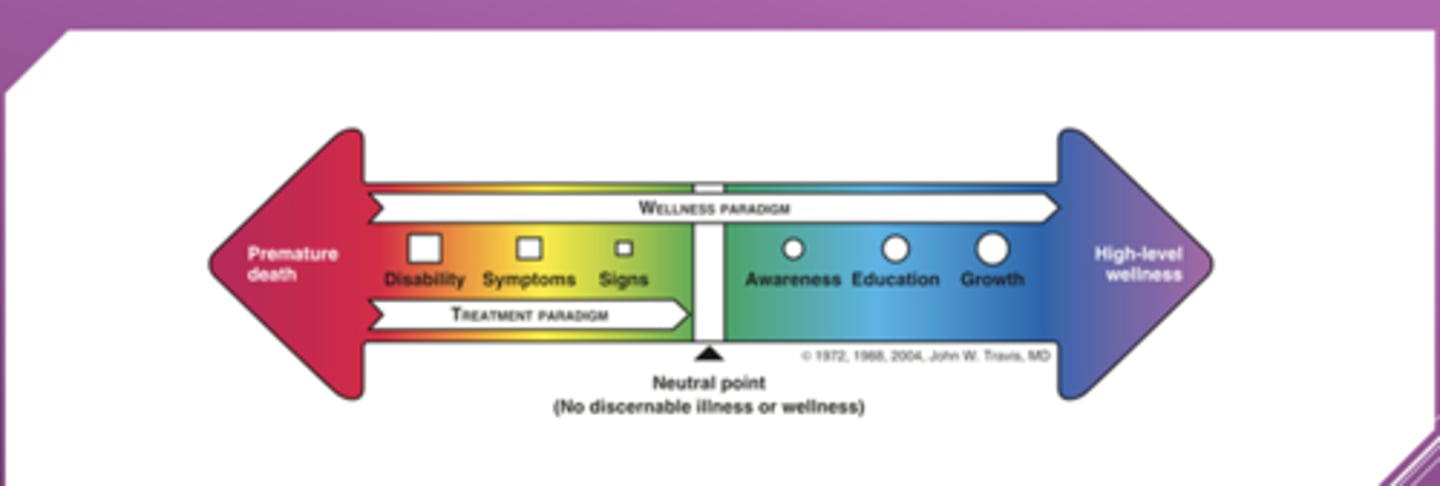
Holistic view of health
focusses on interrelationship of all parts that make up the person
Nursing
embraces a holistic view of health
Jan Christian Smuts (1926)
modern Western model, harmony between people and nature
Healthy People 2030
Healthy People 2030
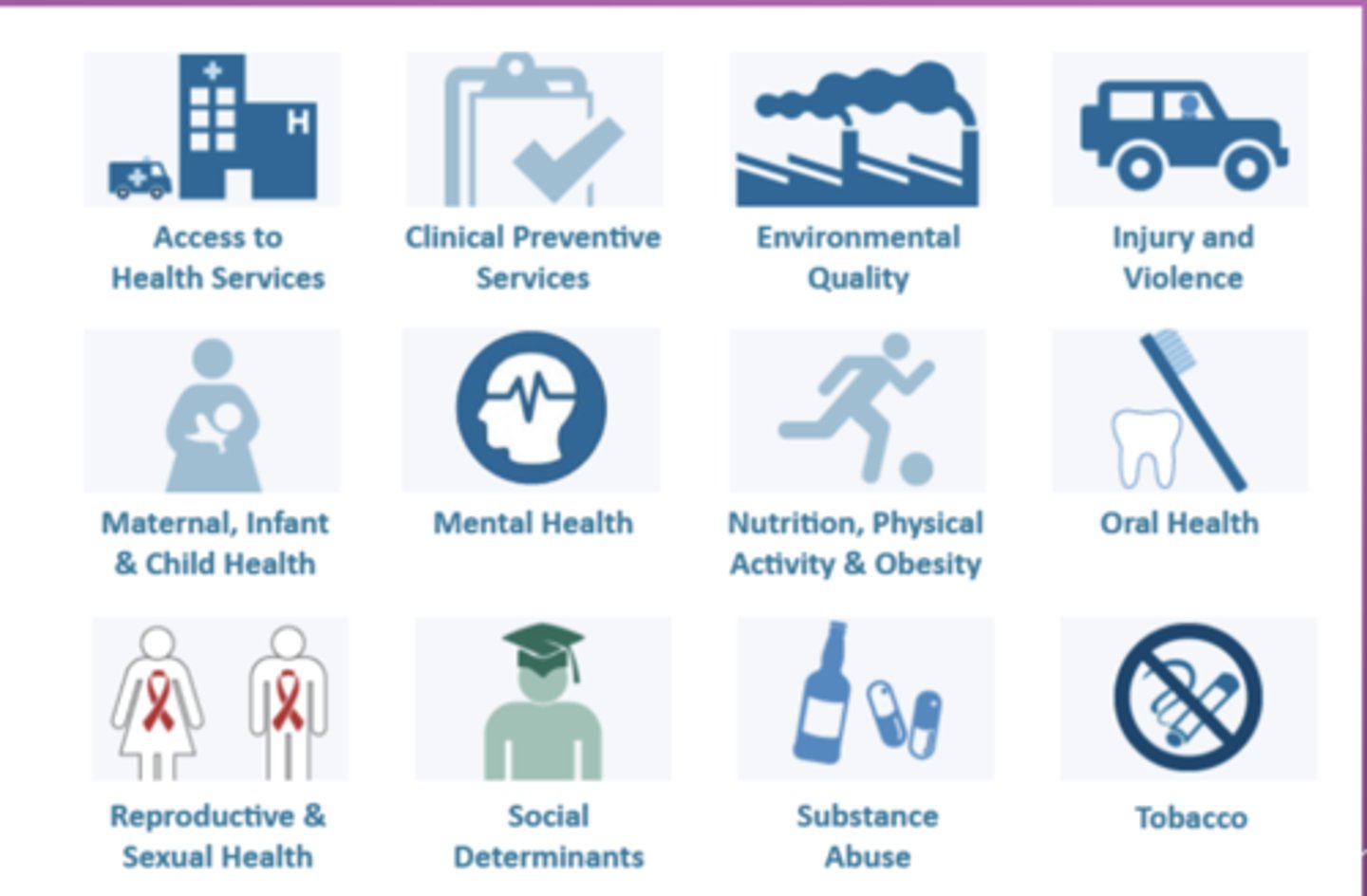
Health
affected by health beliefs and health behaviors
Rosenstock (1966) Health Beliefs Model
3 components
-Vulnerability to a condition
-How effective health maintenance
-Trigger event
Example, smoking
trigger event
an event that triggers a previously unmotivated individual to change health habits/behaviors. Burdette
Bandura (1977) Self Efficacy
-Cognitive psychologist
-assist in health-related behaviors
-Self efficacy – leads to change
-4 components needed for effective program of lifestyle change:
---Information
---Skill development
---Skill enhancement through practice and feedback
---Social support
self efficacy
the belief in one's ability to perform tasks and meet challenger to achieve goals.
dr google
Not always best source
cyberchondria
Believe they have disease they read about online
-Who sponsors the site
-Be skeptical – evaluate the source to determine whether there is self interest (ex. A drug company promoting a product)
-Check authors name and credentials
-What is the purpose of the site
-Last date of revision
-Editorial review
-Material consistent with science, not testimonials
-Who runs the site
-Unbiased
what are some things to think about when assessing health related sites
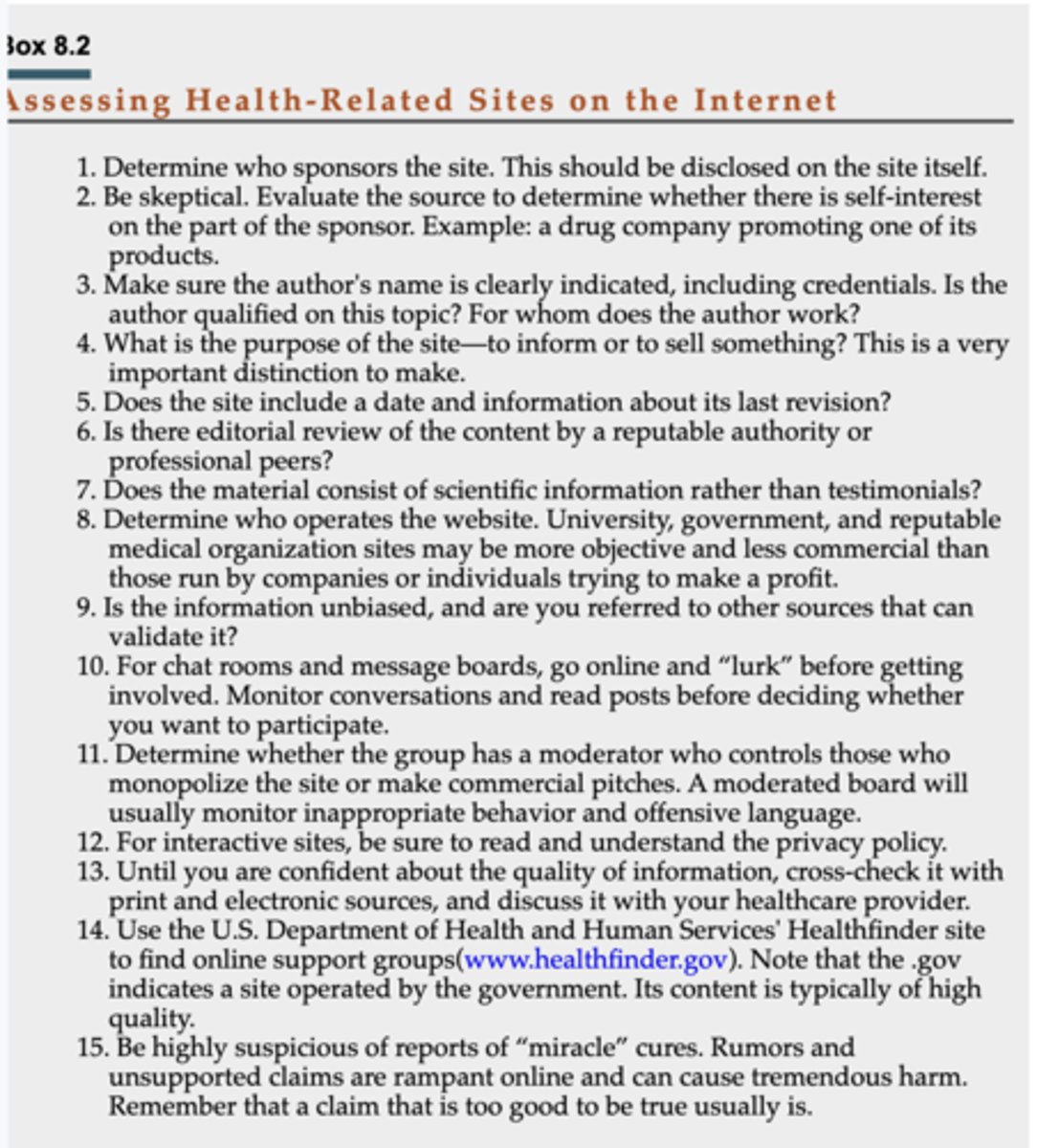
changing
Health is constantly ...
entire person
Health impacts the ...
POWERFUL
Individuals health belief are ...
efficacy and support
•Individuals desiring change may lack knowledge, motivation, sense of self ...
help
Knowledge does not always ...
SLOW
Change is often very ...
Burden
________ of action is mutually shared by patient, HCP and population focused entities
Social policy statement (ANA)
-Essence of profession
-Guides our social responsibility
Code of Ethics for Nurses
statements of the professionals' values and beliefs, which are based on ethical principles
Pg 194 box 8-3 personal plan for high level wellness**** do this
Pg 194 box 8-3 personal plan for high level wellness**** do this
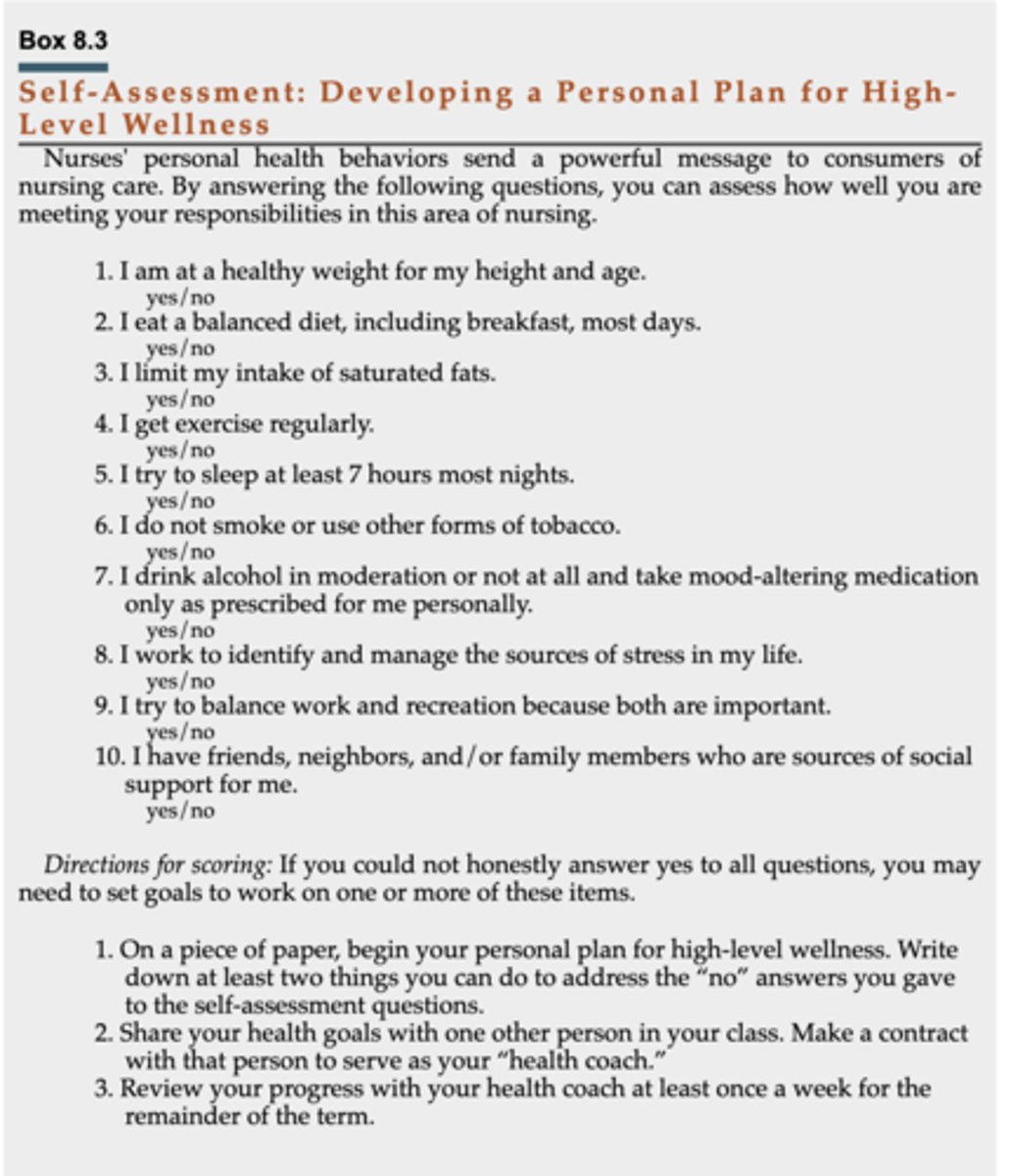
cognitive
intellectual, weigh alternatives
prizing
emotional, feeling good about a choice
acting
behavioral, affirm publicly and act on choice - mark of a real value when consistent
CONSIDER THE SOCIAL POLICY STATEMENT (ANA, 2010)
GUIDES PRACTICE, NURSES SOCIAL RESPONSIBILITY, AND INFORMS OTHERS
descriptive beliefs
-shown to be true or false
-"The sun will come up tomorrow morning"
evaluative beliefs
-judgement about good or bad
-"Advanced live support for 90 year old is immoral"
prescriptive beliefs
-actions are judged to be desirable or undesirable
-"Every voting citizen should vote in every election"
philosophy
The study of the principles underlying conduct, thought and nature of the universe. Contemplate or wonder about something
steps in philosophy
1- Aesthetics- differs individual to individual
2- Ethics- Behavior depends one moral principles and values
3- Politics- recommends improvements for conditions in society
4- Metaphysics- believe that through contemplation we can come to a more complete understanding of reality than science alone can provide.
5- Logic- study of proper and improper methods of reasoning
6- Epistemology- theory of knowledge itself
